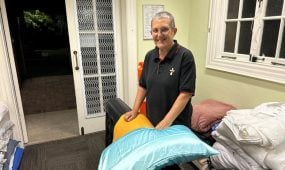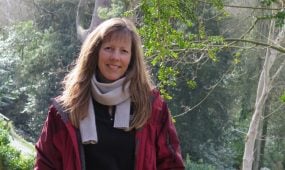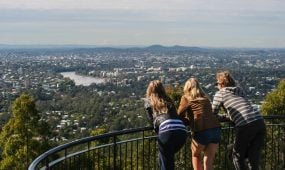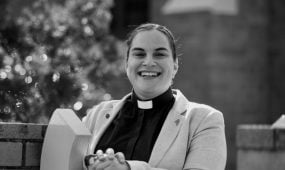St John's College university students reflect on the referendum
Justice & Advocacy
Three St John’s College within the University of Queensland students, Nick Nairn, Abigail Williams and Ella Anderson, share their thoughts on the referendum about constitutional recognition of Indigenous Australians through a Voice to Parliament following a College gathering, which included Aunty Dr Rose Elu as a guest speaker
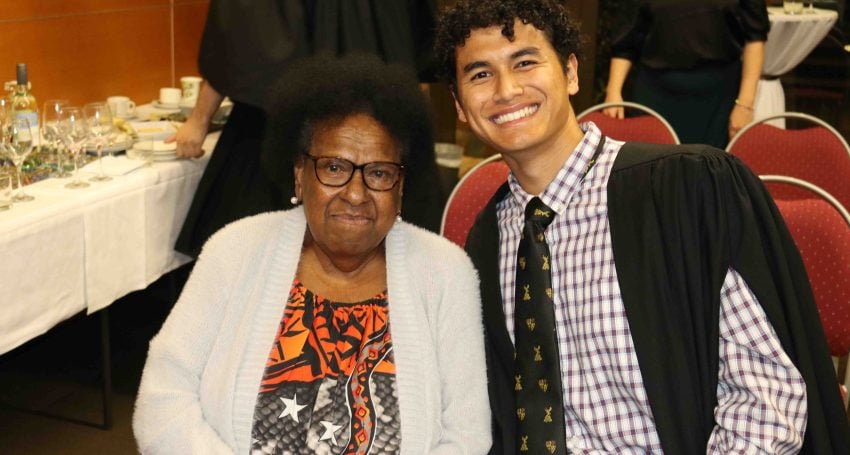
Three St John’s College within the University of Queensland students share their thoughts on the referendum about constitutional recognition of Indigenous Australians through a Voice to Parliament following a formal dinner, when Aunty Dr Rose Elu spoke, and a post-dinner conversation with Wiradjuri woman Dr Jessa Rogers and journalist Michelle McDonald.
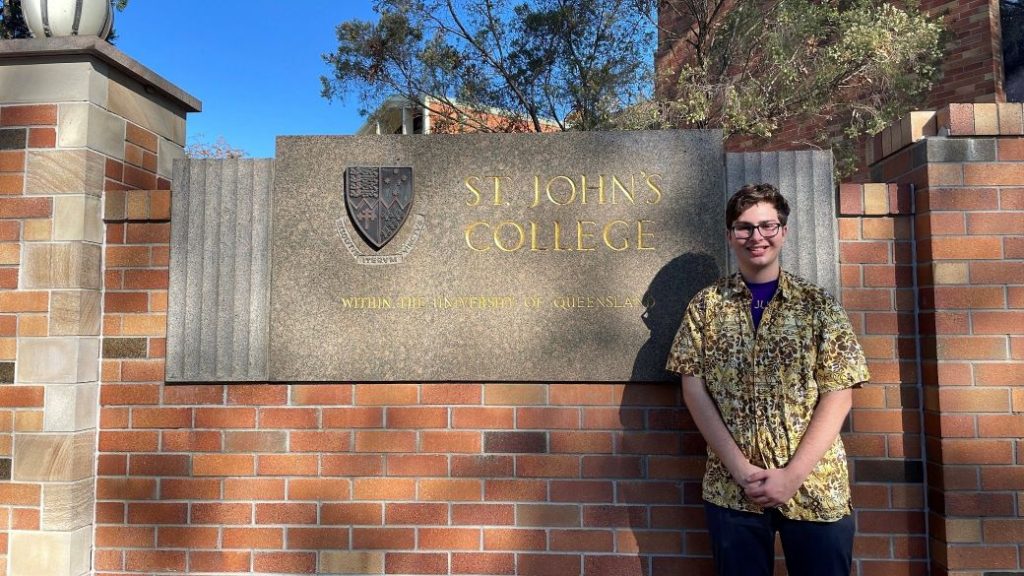
“I believe that the Voice to Parliament can change these things for the better and give Indigenous Australians equal opportunities in life,” (Nick Nairn from St John’s College within the University of Queensland in October 2023)
Nick Nairn — Student, St John’s College within the University of Queensland
What really resonated with me at the conversation event is when Dr Jessa Rogers, a Wiradjuri woman, said that she used to be on the ‘No’ side of the referendum, but after reflecting and talking to a constitutional lawyer, she has decided to vote ‘Yes’. This resonated with me because I went through a similar thought process.
Looking at all the statistics about how a much higher percentage of Indigenous Australians live in poverty, have shorter lifespans, and have much higher incarceration rates compared to non-Indigenous people makes me realise how Australian society is not equal for them. I believe that the Voice to Parliament can change these things for the better and give Indigenous Australians equal opportunities in life, as they rightly deserve.
While there are Indigenous Australians in government, they have to represent their whole electorate and are also influenced by their political party’s line. Because the Voice members would be Aboriginal and Torres Strait Islander peoples solely selected by their communities, serving fixed terms, they will be able to represent Indigenous peoples and their needs independently.
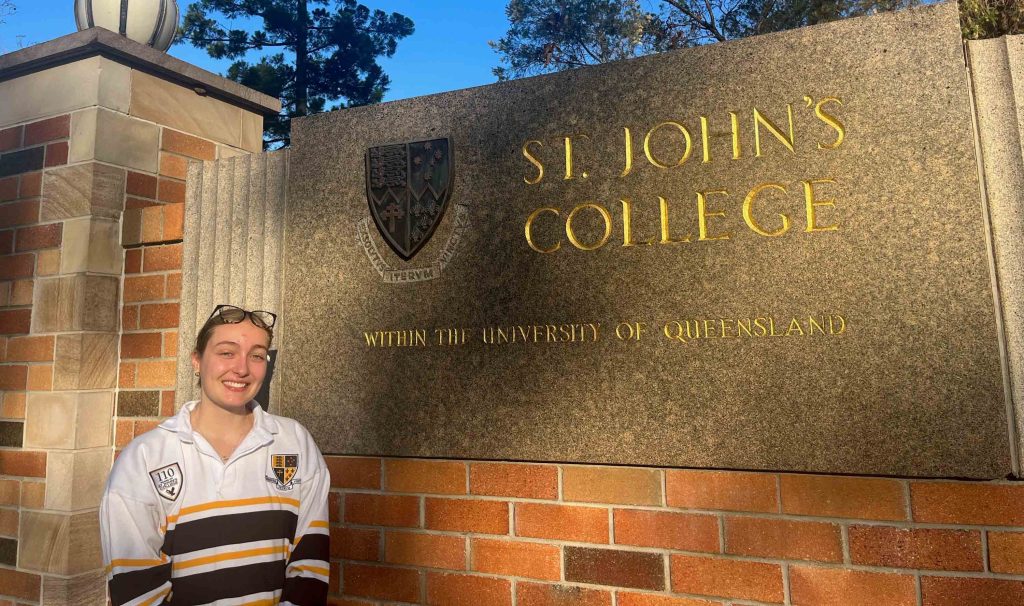
“The Voice will be able to advise from the grassroots on the design and implementation of health services for Indigenous communities. The Voice will help ensure that policy makers consider cultural nuances and that services are the most effective they can be,” (Abigail Williams from St John’s College within the University of Queensland in October 2023)
Abigail Williams — Student, St John’s College within the University of Queensland
I was very interested to hear Dr Jessa Rogers explain her decision to change from a ‘No’ to a ‘Yes’ vote. She described how if we as a nation really want to see change, we need to change what we are currently doing and use a new approach.
I’ve also been thinking about what other speakers, such as Aunty Dr Rose Elu, said on the night. Indigenous Australians need to provide input in a coordinated way early on to be efficient and effective in key policy areas; for example, so we can close the widening health and life expectancy gap.
Advertisement
Constitutional recognition of Indigenous Australians is very important to me as a first generation Australian. I see it as a sign of respect and solemn acknowledgement of the hardship experienced by Aboriginal and Torres Strait Islander peoples, both past and present, since colonisation. I also see constitutional recognition as an event to be celebrated. This beautiful land we all call home has been the place of First People’s lives for thousands of years — how amazing is that!
As a current health sciences student and future health practitioner in the dietetics space, I see the implementation of the Indigenous Voice to Parliament as a step forward in closing the health and life expectancy gap. I believe that the Voice will increase the equity and efficiency of the Australian public health system, therefore benefitting all Australians. The Voice will be able to advise from the grassroots on the design and implementation of health services for Indigenous communities. The Voice will help ensure that policy makers consider cultural nuances and that services are the most effective they can be.
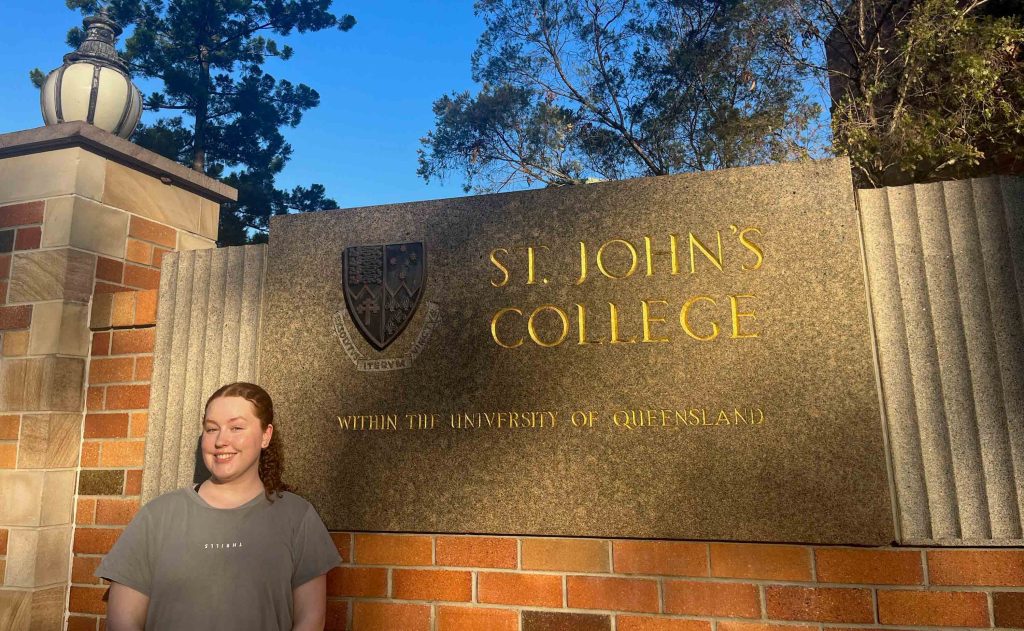
“The Australian Constitution is the only constitution of a ‘First World’ nation with a colonial history that is yet to recognise its First Peoples. The 1967 referendum saw a positive change in attitudes towards Indigenous Australians and I hope that this referendum will have a similar impact,” (Ella Anderson from St John’s College within the University of Queensland in October 2023)
Ella Anderson — Student, St John’s College within the University of Queensland and proud descendant of the Kaanju and Mamu peoples
On the night, Michelle spoke about how Australia and New Zealand differ because New Zealand’s founding document is the Treaty of Waitangi (which was signed in 1840), while Australia’s founding document is the Australian Constitution (which took effect in 1901). She then mentioned that constitutional recognition of Aboriginal and Torres Strait Islander peoples is needed before there is a legislated process to oversee agreement making (or treaty) and truth-telling, which are necessary for Reconciliation. These were new points for me to think about.
Related Story
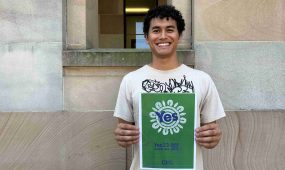 Justice & Advocacy
Justice & Advocacy
Why I am voting “yes” in the referendum: Aiden Wu
Constitutional recognition through a Voice to Parliament is important to me because Indigenous Australians are significantly behind in terms of education, health and life expectancy rates. Time and time again we see new Parliaments create legislation only for it to be thrown out by the next Parliament. Having a Voice enshrined in the Constitution means that Aboriginal and Torres Strait Islander communities will have a direct and stable channel to communicate their concerns as Parliaments change.
The Australian Constitution is the only constitution of a “First World” nation with a colonial history that is yet to recognise its First Peoples. The 1967 referendum saw a positive change in attitudes towards Indigenous Australians and I hope that this referendum will have a similar impact; but on a larger scale, impacting not just how we see ourselves, but how other countries see us.
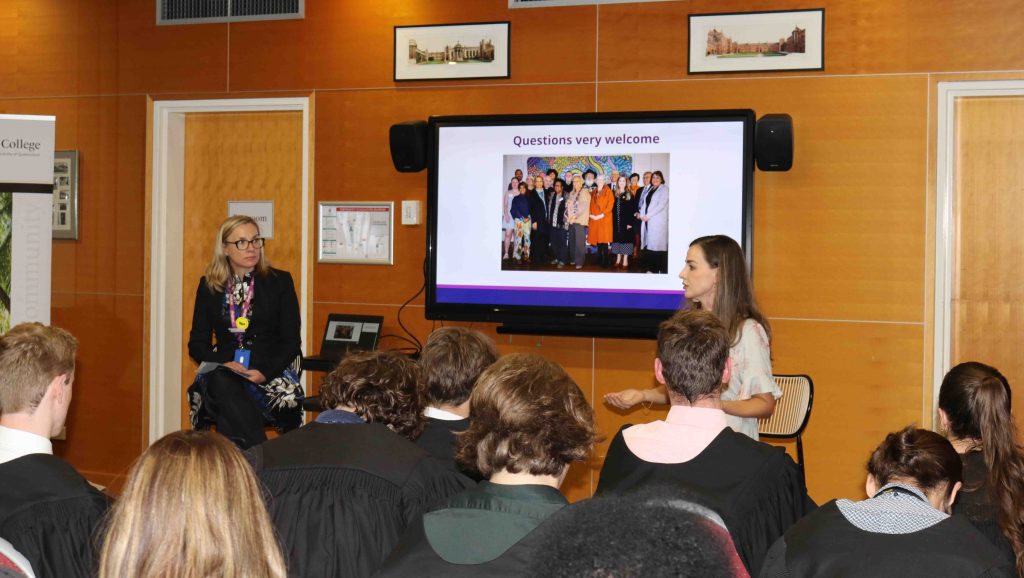
Wiradjuri woman Dr Jessa Rogers and journalist Michelle McDonald in conversation with St John’s College within the University of Queensland students about constitutional recognition of Aboriginal and Torres Strait Islander peoples through a Voice to Parliament on 18 September 2023
Editor’s note: This anglican focus feature, written by The Ven. Geoff Hoyte, The Rev’d Michael Stalley and The Rev’d Rick Gummow, provides a timeline showing how the ACSQ came to its position on recognising Aboriginal and Torres Strait Islander peoples in the Constitution through a Voice to Parliament.

